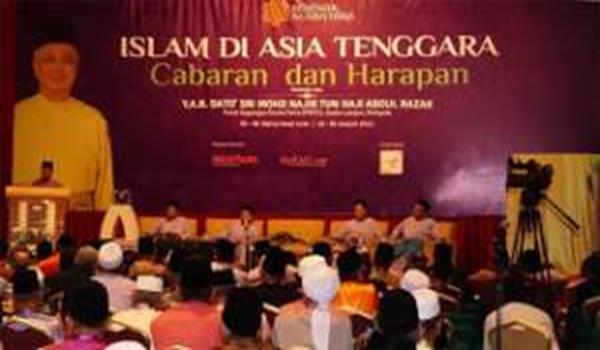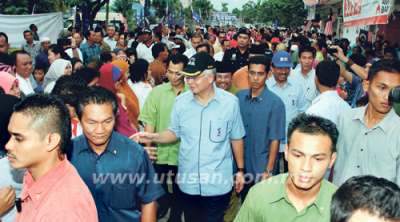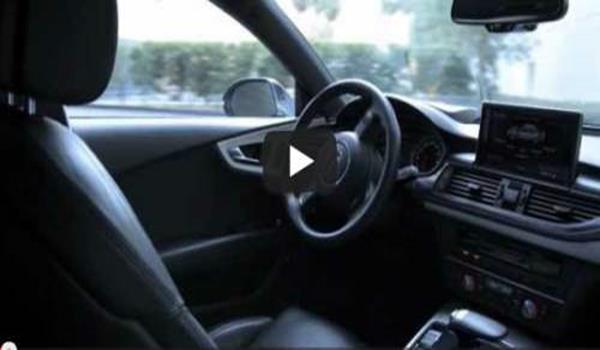 The paperwork presentation made during Nusantara Seminar on January 18 -20, should be taken as a guideline for all Muslim, especially Malaysians in facing challenges and obstacles.
The paperwork presentation made during Nusantara Seminar on January 18 -20, should be taken as a guideline for all Muslim, especially Malaysians in facing challenges and obstacles.
As for the context on Malaysia, where Muslims are still looking for their identity and path, a presenter from Indonesia, Prof. Dr. Hj Ali Mustafa Yakub who presented the paper on “Purification of Thought and Development Among Indonesian Muslims”, is very interesting. Looking back at the history of Islam in Indonesia, he concluded that Islam does not fall on a particular race or Arabic culture and it does not fall on a fixed image. For example, Arabic style attire or the dome, that does not really define the symbol or mark of Islam, it is only based on the imagination and speculations based on the environment.
Putting a special ‘image’ on Islam could cause trouble where Muslims tend to make their own judgement on Islam. Islam is a religion that is suitable at any place or time. So, when Islam came to Java, it never really change any of Javanese’s its culture, image, nor structure. That is why the religion was easily accepted by Javanese because they do not have to make any drastic change in terms of their lives.
In short, the change is more of a spiritual change.
Taking note from the paperwork, Muslims in Malaysia should admit how we went a little overboard in focusing on the image of Islam instead of focusing the main picture of Islam. From there, Muslims began to judge one another which then leads to fights. And from there, people begin to idolize individuals based on their appearance up to a point where it seems very easy to become an Ulama, by just showing the image of Islam to public.
This issue was clearly brought out by a presenter from Malaysia, Prof. Dato’ Dr. Sidek Baba, a lecturer from UIA in his paperwork entitled “Islam in Southeast Asia: Challenges and Hope”. Accordding to Prof. Sidek, Malaysian Muslims are now under the threat of shallow mind as they focus more on image instead of knowledge. Today, the concept of dakwah in Malaysia is more of in form of criticism. From there, people began to has this prejudice against one another and they refuse to unite. A real preacher is suppose to convey the spirit of love, respect and union and they should not support the act of sentencing one another.
This concept was clearly explained by Ustaz Kamal Saidin in a separate session which is also a continuity from the seminar. According to Ustaz Kamal, “These Ulama like to take over the work of Allah SWT (sentencing) instead of performing their real tasks”.
Because of these Ulama, Muslims today only focus on image because they are worried if they are criticized by the public even if their basic of Islam is still weak. In other words, they got busy perfecting their ‘image’ instead of doing any good deeds.
This issue has somehow led to another issue where the message of Islam do not get to places that matters. As those Ulama gets busy trying to ‘Islamise’ the country, the law and Muslims, they somehow missed other things such as Bumiputera in Sabah and Sarawak as well as Indigenous people from the Peninsular who are still yet to receive the message of Islam.
Few of the things which were exposed during the seminar include the discussion on how a few bumiputera were really interested to learn about Islam, but sadly, the Christians got to them first. Despite that, they never really give up on wanting to learn about Islam where they would send their kids to gain information about the religion through ceramah in schools etc. At the same time, the Christians would work hard to approach the group but there are no response from Islamic Ulama.
Thinking about how a few Muslims who brought the image of Islam can still fall under the trap of false Ulama, what about those who do not know much about Islam. Even if they do want to learn about Islam, they can easily be confused as kalimah Allah is being used by other religion.
Thus, the conclusion from the seminar has helped us to see the obstacles which are faced by Islam today. The answer towards solving all of the issues however, is still yet to to be found.
From there, the suggestion given by a Parliament Member from Cambodia, Tuan Haji Zakariyya Adam who is also a presenter on a paper entitled “Socio-Economic Development For Cambodian Muslims” in establishing the “Supreme Islamic Reference Centre” for the ASEAN region where all Ulama around the region would work together to handle the issue in an organized manner.
The conclusion, Nusantara Seminar was a success, but it would not change anything until further actions are taken










